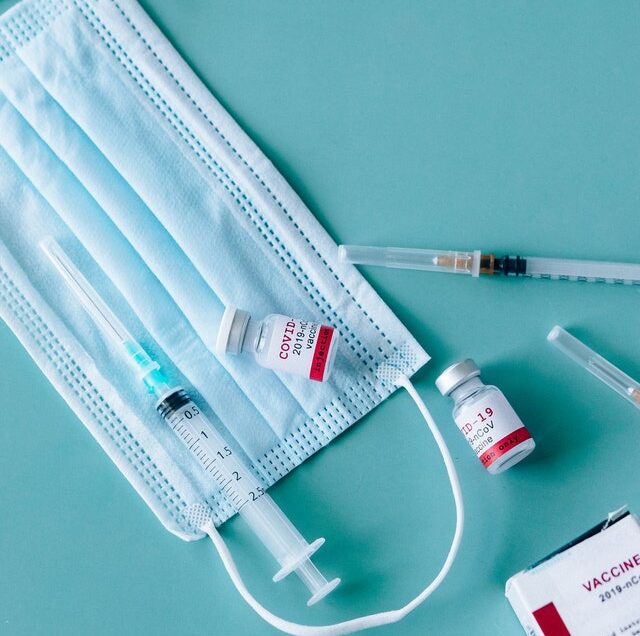The Occupational Safety and Health Administration (OSHA) has issued an emergency temporary standard (ETS) to minimize the risk of COVID-19 transmission in the workplace. Employers with 100 or more employees will need to comply with ETS requirements to protect employees from the risk of contracting COVID-19 in the workplace by enforcing a mandatory COVID-19 vaccination policy or establishing a policy allowing employees to elect either vaccination or weekly COVID-19 testing and wearing a face mask in the workplace.
This article highlights information from the CDC about COVID-19 vaccine efficacy and safety as well as vaccination benefits. OSHA’s ETS requires affected employers to provide this vaccine resource to employees.
Vaccine Availability
COVID-19 vaccines are widely accessible in the U.S. Everyone aged 5 years and older should get vaccinated as soon as possible. Click here to learn more about vaccines for children and teens.
Keep in mind that COVID-19 vaccines are available for everyone at no cost. Many doctors’ offices, retail pharmacies, hospitals and clinics offer COVID-19 vaccinations. Visit the CDC’s website to learn more about finding a COVID-19 vaccine near you.
Vaccine Efficacy
COVID-19 vaccines are effective at protecting you from the disease, especially severe illness and death. These vaccines can reduce the risk of people spreading the virus that causes COVID-19. If you are fully vaccinated, you can resume activities that you did before the pandemic. Learn more about what you can do when you have been fully vaccinated and the additional benefits of getting vaccinated.
Studies show that COVID-19 vaccines are effective at keeping you from getting seriously ill even if you do get the disease; these vaccines teach our immune systems how to recognize and fight the virus that causes COVID-19. It typically takes two weeks after vaccination for the body to build protection (immunity) against the virus that causes COVID-19. That means it’s possible a person could still get COVID-19 before or just after vaccination and then get sick because the vaccine did not have enough time to build protection.
People are considered fully vaccinated two weeks after their second dose of the Pfizer-BioNTech or Moderna COVID-19 vaccines or two weeks after the single-dose Johnson & Johnson COVID-19 vaccine. To receive the most protection, people should receive all recommended doses of a COVID-19 vaccine. Learn more about who is recommended for an additional dose or a booster dose.
People can sometimes get COVID-19 after being fully vaccinated. However, this only happens in a small proportion of people, even with cases of the coronavirus Delta variant taken into account. When these infections occur among vaccinated people, they tend to be mild.
Vaccine Safety
While COVID-19 vaccines were developed quickly, the vaccines are safe and effective. Millions of Americans have received COVID-19 vaccines, and these vaccines have undergone and continue to go through the most intensive safety monitoring in U.S. history. This monitoring includes using both established and new safety monitoring systems to ensure COVID-19 vaccines are safe.
The CDC has developed a new tool, v-safe, to help quickly find any safety issues with COVID-19 vaccines. V-safe is a smartphone-based, post-vaccination health check for people who receive COVID-19 vaccines.
Vaccine Side Effects
COVID-19 vaccination will help protect you from getting COVID-19. A vaccine cannot give you COVID-19. Vaccination side effects are normal signs that your body is building protection. As such, you may experience the following side effects after vaccination:
- Injection site pain, redness or swelling
- Tiredness
- Headache
- Chills
These side effects may affect your ability to do daily activities, but they should go away in a few days. Alternatively, some people experience no side effects.
Serious side effects that could cause long-term health problems are extremely unlikely following any vaccination, including COVID-19.
Vaccines and COVID-19 Variants
COVID-19 vaccines approved or authorized by the U.S. Food and Drug Administration help protect against Delta and other known variants of the coronavirus. These vaccines are especially effective at keeping people from getting very sick or dying from COVID-19.
Right now, the CDC doesn’t know how effective the vaccines will be against new variants that may arise but will continue to monitor pandemic developments.
Population Immunity
Population immunity, also known as herd immunity or community immunity, means that enough people in a community are protected from getting a disease because they’ve already had the disease or because they’ve been vaccinated.
Population immunity makes it hard for a disease to spread from person to person. It even protects those who cannot be vaccinated, like newborns or people allergic to a vaccine. The percentage of people who need to have protection to achieve population immunity varies by disease.
Health experts and the CDC are still learning how many people need to be vaccinated against COVID-19 before the population can be considered protected by population immunity.
Summary
OSHA’s ETS requires large private employers with 100 or more employees to minimize the risk of COVID-19 transmission in the workplace. Based on rigorous testing and safety monitoring, widespread COVID-19 vaccination is a critical tool to best protect everyone in and out of the workplace. That’s why the CDC recommends everyone ages 5 and older get vaccinated to help minimize the risk of COVID-19 transmission.
COVID-19 vaccines in the United States are safe and effective at helping protect against severe disease and death. COVID-19 vaccination will not make you sick with the virus, and it is a safer way to help build protection in the workplace and community. And once you’re fully vaccinated, you can resume activities that you did before the pandemic.
Visit the CDC’s website to learn more about COVID-19 vaccines.
